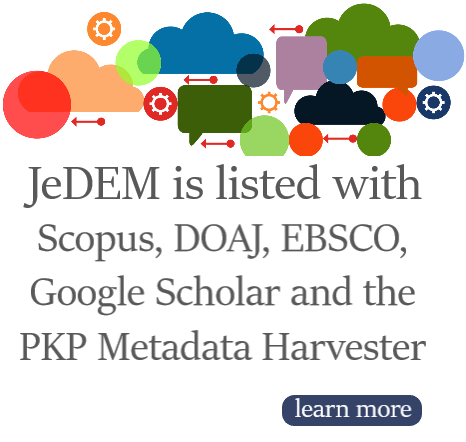The Liquid Proposal Facing Democratic Challenges
DOI:
https://doi.org/10.29379/jedem.v14i1.692Keywords:
Deliberation, delegation, proxies, digital, algorithms, artificial intelligenceAbstract
The objective is to show how Liquid Democracy intends to assume the sine qua non conditions of a true democracy and undertake the democratic challenges to achieve a good democratic quality. The conceptual analysis methodology reviews the origin and modalities of Liquid Democracy to evaluate it against the requirements indicated by Morlino and examine its possibilities through the challenges described by Linz and the dangers exposed by Levitsky and Ziblatt. The results present the level of quality attainable by liquid modalities. In contemporary conditions, the analysis also detects the confusion of Liquid Democracy with Electronic Democracy and the risks that both have acquiring technocracy seeking technopolitics. The originality of the analysis includes links to patterns of algorithmic democracy and artificial intelligence. In conclusion the article shows the value of the liquid model and elements of its political and communicative quality. The conclusions also point to some opportunities to improve democracy.
Downloads
Metrics
Downloads
Published
How to Cite
Issue
Section
License
Copyright (c) 2022 Jorge Francisco Aguirre Sala

This work is licensed under a Creative Commons Attribution 3.0 Unported License.

JeDEM is a peer-reviewed, open-access journal (ISSN: 2075-9517). All journal content, except where otherwise noted, is licensed under the CC BY-NC 4.0 DEED Attribution-NonCommercial 4.0 International














